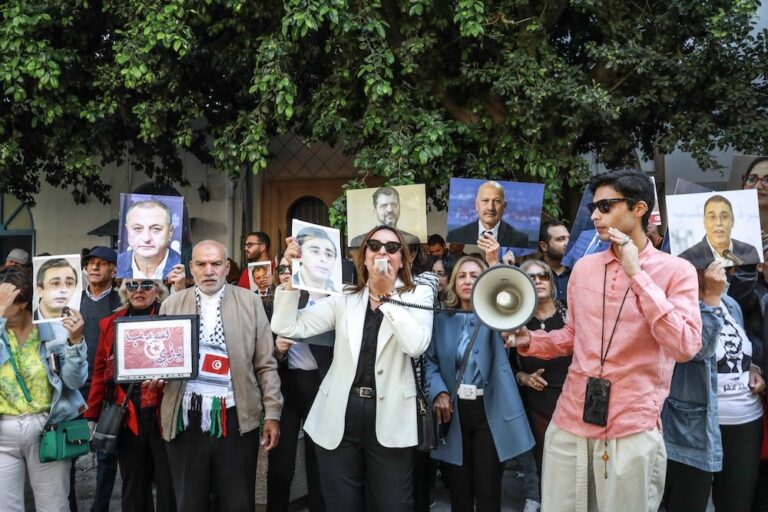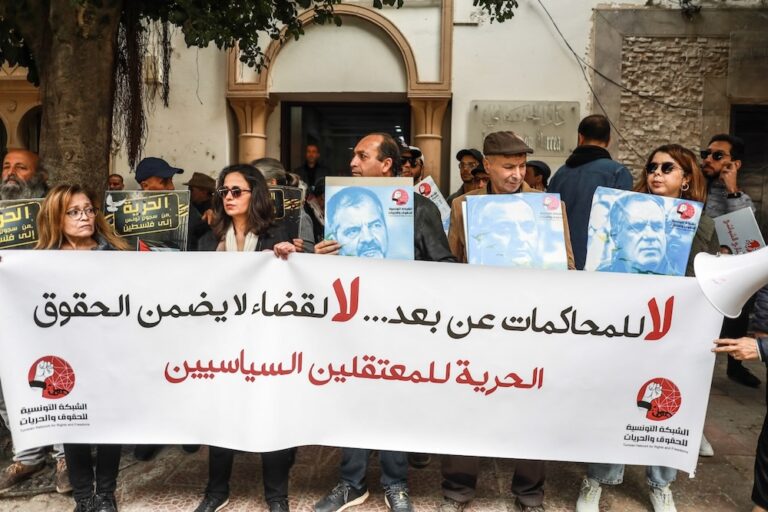RSF reiterates its opposition to filtering, which has proved to be ineffective in other countries in the past and ends up blocking websites that are not targeted as well as those that are.
(RSF/IFEX) – 16 August 2011 – A Tunis appeal court yesterday upheld a 27 May 2011 court decision requiring the Tunisian Internet Agency (ATI) to block access to pornographic websites. ATI said it would refer the case to the country’s highest appeal court because it did not have the “financial and technical resources” to create the filtering and censorship system needed to implement the ruling.
Moneem Turki, who represents the group of lawyers behind the legal initiative to have the filtering introduced, said ATI would have to begin implementing the order at once because it would not be suspended pending the outcome of the second appeal.
Reporters Without Borders reiterates its opposition to filtering, which has proved to be ineffective in other countries in the past and ends up blocking websites that are not targeted as well as those that are.
BACKGROUND:
On 1 July, Reporters Without Borders expressed concern that Internet censorship, widely practiced under the Ben Ali regime that was overthrown last January, could be reintroduced in Tunisia as a result of a legal initiative by a group of lawyers who obtained a court order on 26 May forcing the Tunisian Internet Agency (ATI) to block porn sites on the grounds that they posed a threat to minors and Muslim values.
Prior to this latest appeal, the agency attempted to block the order, but its request was rejected by another court on 13 June.
ATI had undertaken to comply with the order while reiterating “its determination, as an Internet exchange point, to act in a transparent and neutral manner as regards all the websites to be filtered by means of its equipment.”
The agency warned the public that the reactivation of filtering could lead to a deterioration in the quality of service, above all because of network maintenance problems.
ATI began to comply with the legal initiative by stages on 15 June, introducing filtering in a number of government agencies and ministries, residences for young people and Internet cafés, but up to 1 July not for domestic users. The Internet company McAfee’s Smartfilter is being used for the filtering. The agency has given out an e-mail address (filtrage@ati.tn) to which suspected filtering errors can be reported, but says it cannot take responsibility for any errors.
As of 1 July, the list of blocked websites was not known. Internet filtering usually results in overblocking (the blocking of non-targeted sites as well as targeted ones) and a general slowing down of Internet bandwidth. Its effectiveness is also questionable as many Tunisian Internet users have learned in recent years to use proxies and other censorship circumvention tools to access blocked sites. There is also a financial cost.
Like many Tunisian netizens, Reporters Without Borders is worried by the return of Ben Ali-era practices and fears that the porn site filtering could pave the way for censorship of other kinds of content. Generalized filtering violates Net neutrality and the freedom of expression advocated by the Commission for the Realization of the Goals of the Revolution and Democratic Transition.


